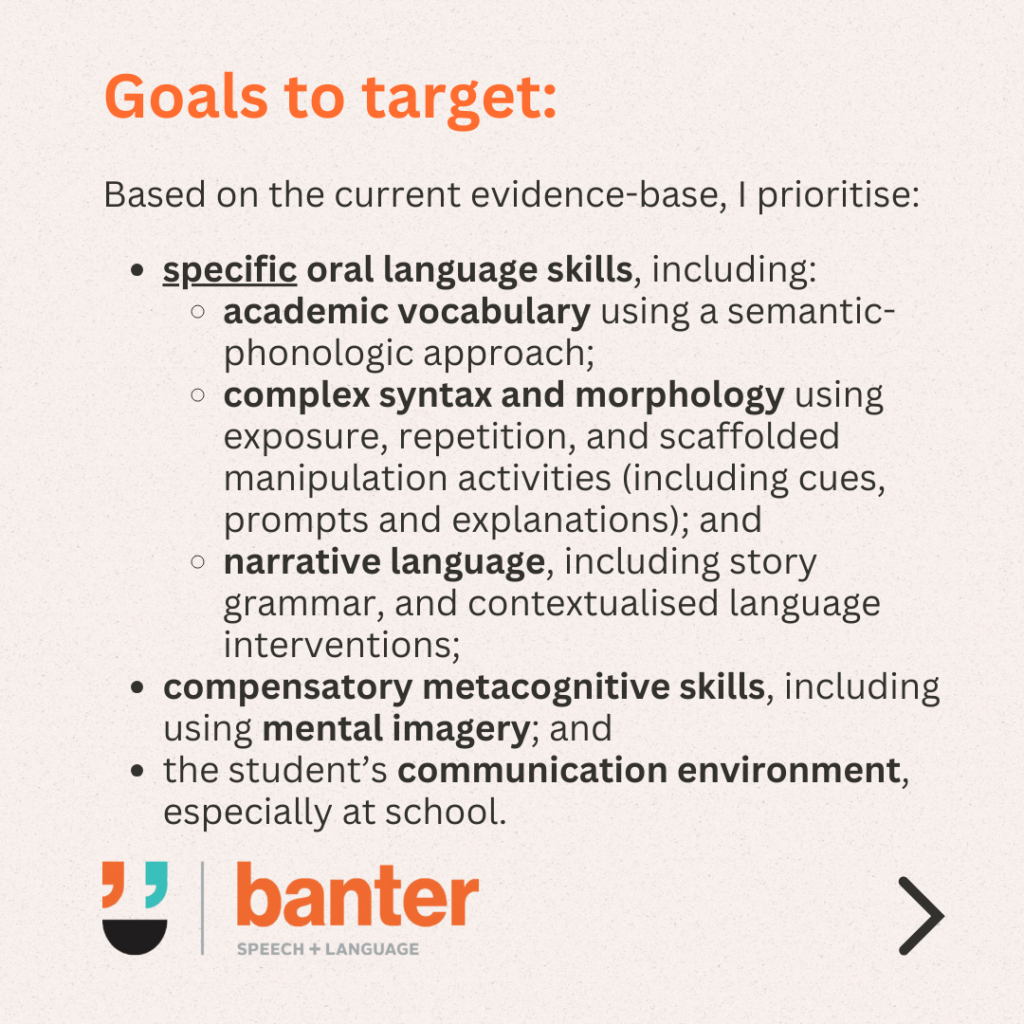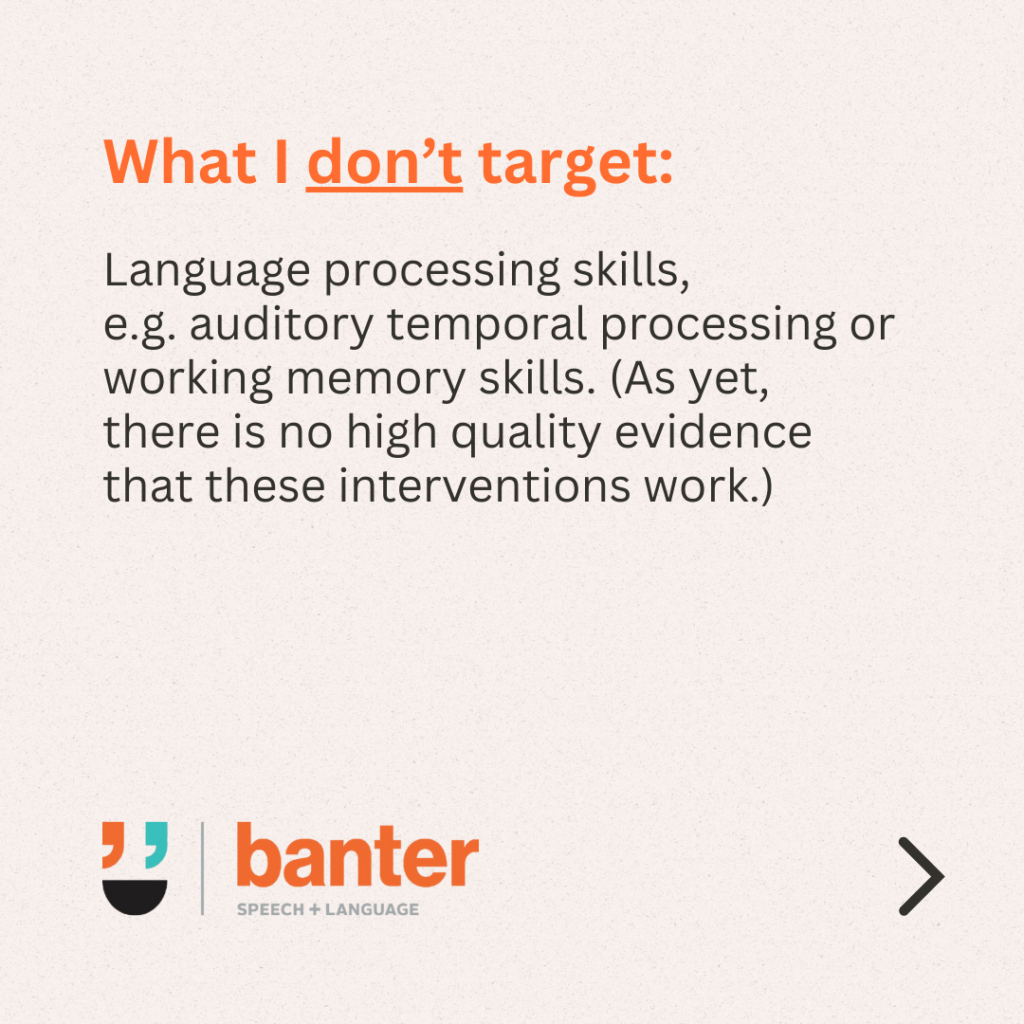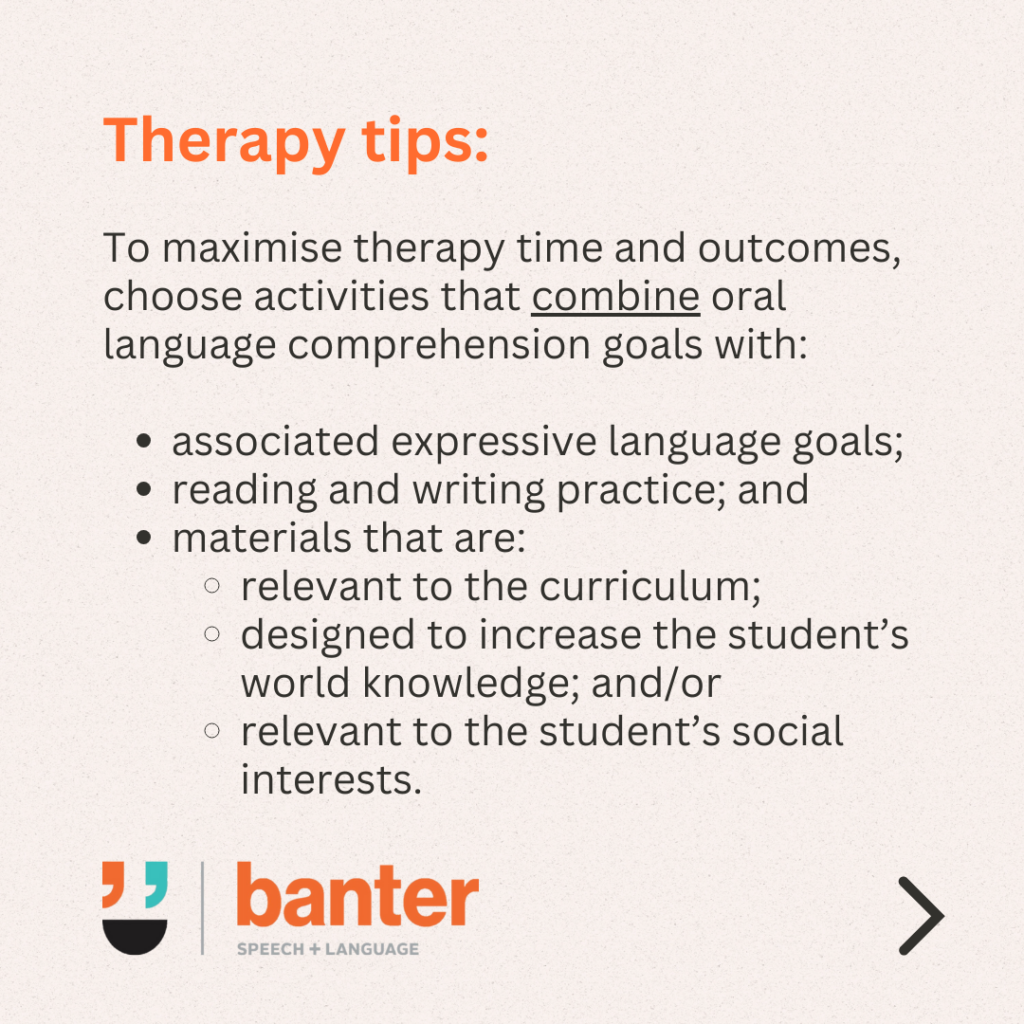To improve the oral language comprehension of school age children with DLD, we must target the right goals. (Here’s what I do, and how I do it.)
The big picture:
- Difficulties with oral language comprehension are hard to treat.
- But they are not untreatable.
- With evidence-based goals and therapy approaches, students with developmental language disorder (DLD) can improve their language comprehension skills.
Why it matters:
Good language skills make life a lot easier. Language comprehension issues tend to:
- persist into adulthood;
- affect reading, writing, and school success;
- make it hard to make and keep friendships;
- reduce independence; and
- increase risks of unemployment and mental health challenges.
Yes, but:
- Few interventions give us high confidence we can improve the oral language comprehension of school-age children with DLD.
- Recent research gives us a lot more hope and help than we had 10 years ago!
Goals to target:
Based on the current evidence-base, I prioritise:
- specific oral language skills, including:
- academic vocabulary using a semantic-phonologic approach;
- complex syntax and morphology using exposure, repetition, and scaffolded manipulation activities (including cues, prompts and explanations); and
- narrative language, including story grammar, and contextualised language interventions;
- compensatory metacognitive skills, including using mental imagery; and
- the student’s communication environment, especially at school.
What I don’t target:
Language processing skills, e.g. auditory temporal processing or working memory skills. (As yet, there is no high quality evidence that these interventions work.)
Therapy tips:
To maximise therapy time and outcomes, choose activities that combine oral language comprehension goals with:
- associated expressive language goals;
- reading and writing practice; and
- materials that are:
- relevant to the curriculum;
- designed to increase the student’s world knowledge; and/or
- relevant to the student’s social interests.
Go deeper:
Tarvainen S, Launonen K, Stolt S. Oral language comprehension interventions in school-age children and adolescents with developmental language disorder: A systematic scoping review. Autism & Developmental Language Impairments 2021 May 24;6. doi: 10.1177/23969415211010423. (Open access)
Oral language comprehension: what is it? A plain English explainer
Practical resources and strategies:
For Primary students with DLD
Interactive Oral Language Workouts for Primary School Students
Semantic Feature Analysis Workouts
Verbal Reasoning and Inference Workouts
Think Then Write Workbook 1: Simple Sentences Workbook
Think Then Write Workbook 2: FANBOYS Compound Sentences
Think Then Write Workbook 3: Complex Sentences
Think Then Write Workbook 4: Paragraph Writing Foundations
Verbal Reasoning, Independence, and Social Participation
We should teach young students self-regulation strategies to improve their writing
For High school students with DLD
Interactive Oral Language Workouts for High School Students
Think Then Write Workbook 5: Multi-Paragraph Information Report Writing Foundations
Think Then Write Workbook 6: Narrative Writing Foundations
Think Then Write Workbook 7: Persuasive Writing Foundations
How to help a disorganised student: some practical ideas and resources
How to help our secondary teachers support teenagers with language disorders at school
This article also appears in a recent issue of Banter Booster, our weekly round up of the best speech pathology ideas and practice tips for busy speech pathologists, speech pathology students and others.
Sign up to receive Banter Booster in your inbox each week:

Hi there, I’m David Kinnane.
Principal Speech Pathologist, Banter Speech & Language
Our talented team of certified practising speech pathologists provide unhurried, personalised and evidence-based speech pathology care to children and adults in the Inner West of Sydney and beyond, both in our clinic and via telehealth.
















